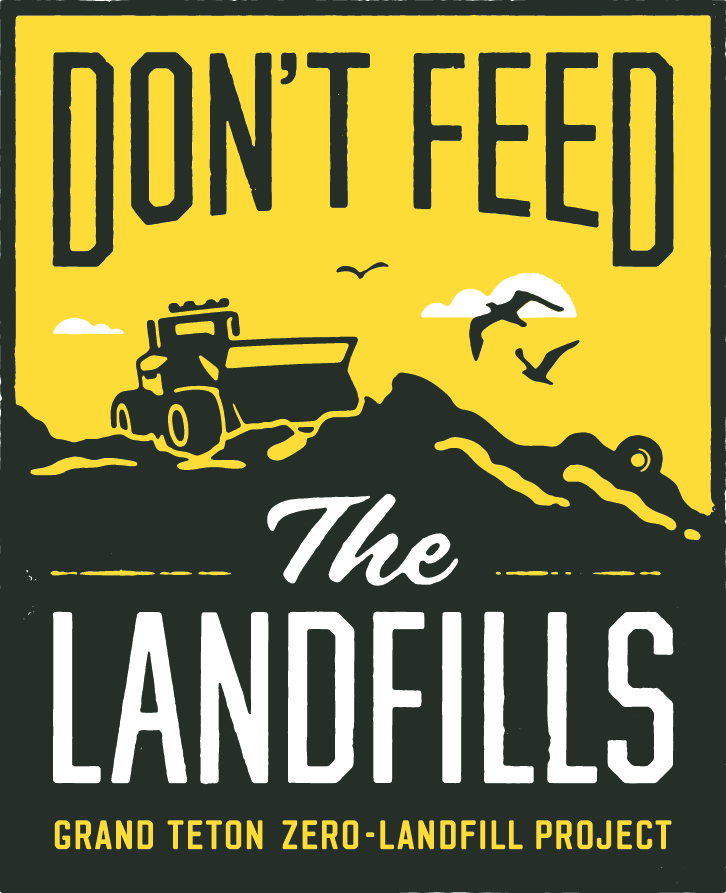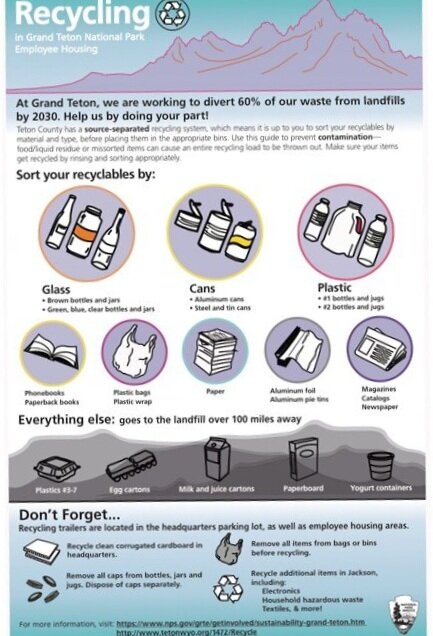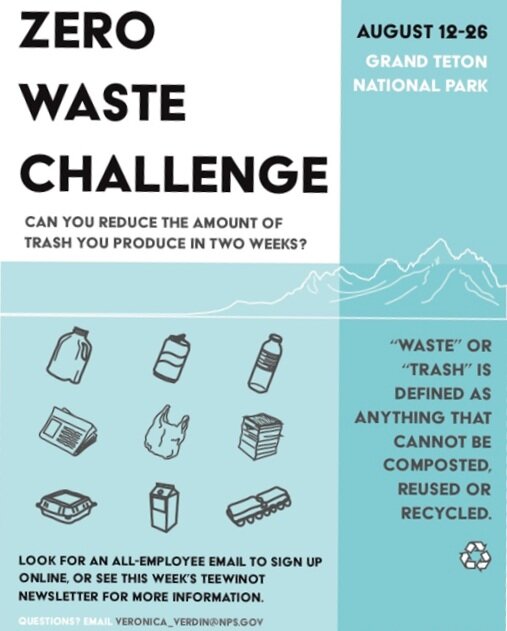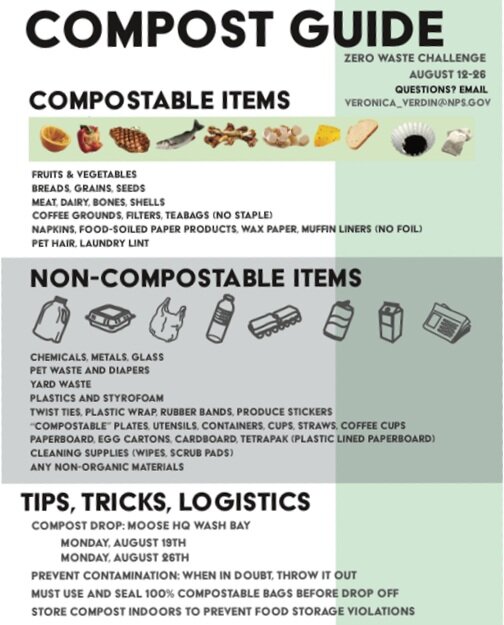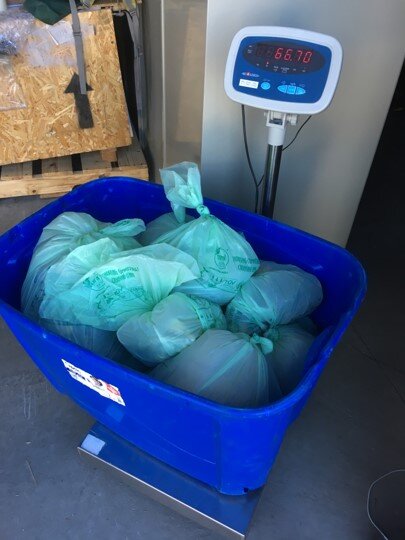GRAND TETON NATIONAL PARK
A sample of the projects the parks have implemented to reach their zero landfill goals
Links to certain characterized projects
COMPOSTING
Potato, Potato…Collaborative Composting Pilot Key to Diversion Wins in the Tetons
As part of ZLI strategic planning in 2017, the Grand Teton project team realized that a local large-scale food waste composting option was at least three years out. For more than a decade, park concessionaires had been trying to work with NPS to tackle what constituted upwards of 30% of their waste stream. In a unique collaborative effort, with the financial support of Subaru, the park concessionaires Grand Teton Lodge Company/Vail Resorts and Signal Mountain Lodge/Forever Resorts partnered with Teton County to launch a pilot composting program. This translates into increasing diversion of targeted food waste from 15 to 57% (73 to nearly 250 tons) in three years. The pilot has provided Teton County with invaluable information as they design the operational and educational components of a community-wide food waste program.
Within its Road to Zero Waste Plan, Teton County, Wyoming—where the park is located—adopted a goal of diverting 60 percent of waste from its landfill by 2030. The county plans to implement municipal-scale food waste composting services in the fall of 2020.
RECYCLING
Teton County Zero Waste Goal
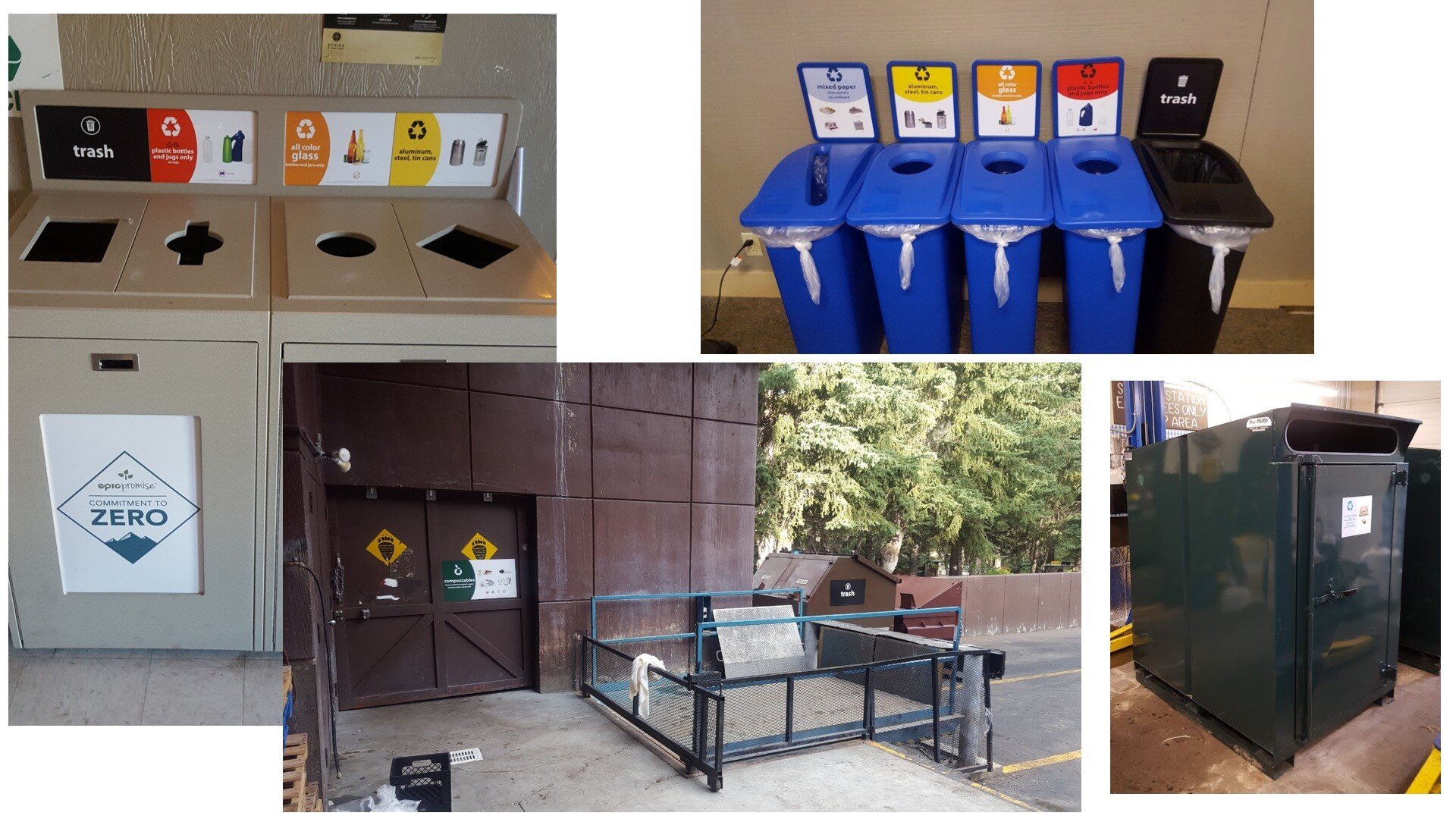
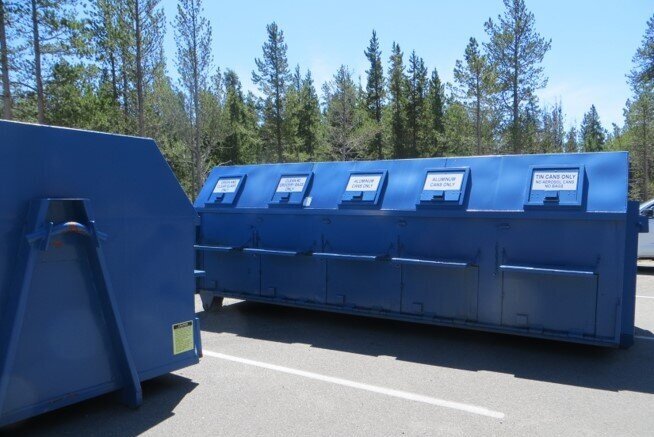
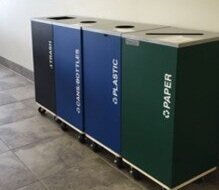
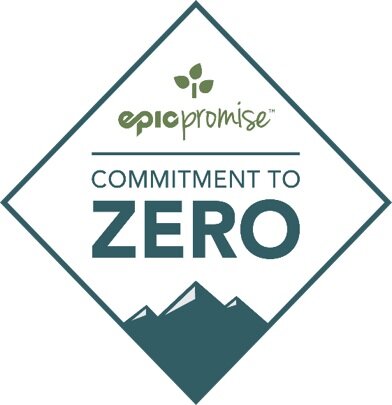
Grand Teton National Park since the launch of the Zero Landfill Initiative has benefitted from Teton County’s zero waste goal of 60% by 2030 (baseline 34% in 2015) and the resources the Town of Jackson and the County have designated for infrastructure and education and engagement. Teton County Integrated Solid Waste and Recycling drafted and announced the plan in 2015, putting the County as one of only about 35 communities in the US with a zero waste goal. The goal and plans supported through resolutions adopted by both the County and Town of Jackson, provides the park with a unique advantage to advance zero waste to landfill efforts.
No Fueling Around – Managing Single Use Propane is a Challenge
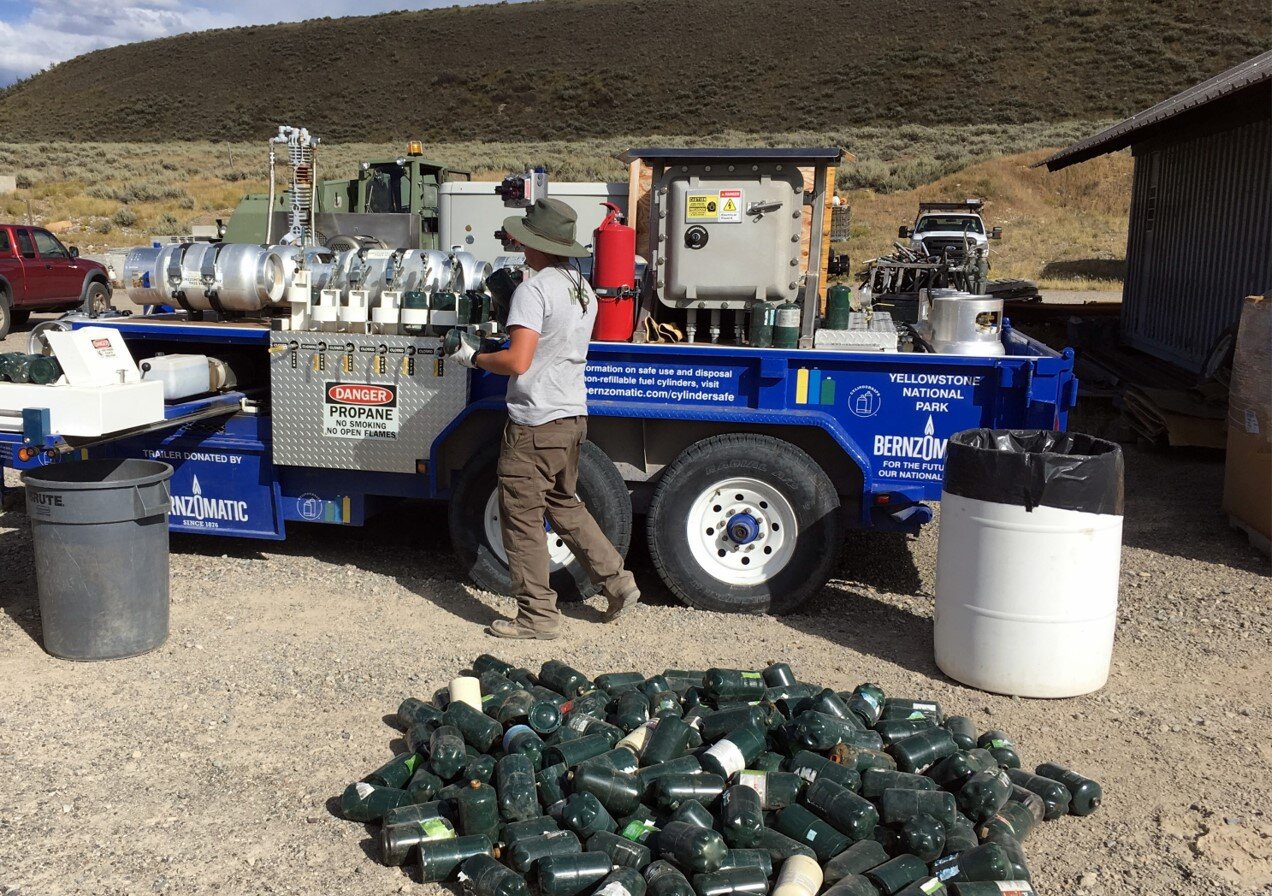
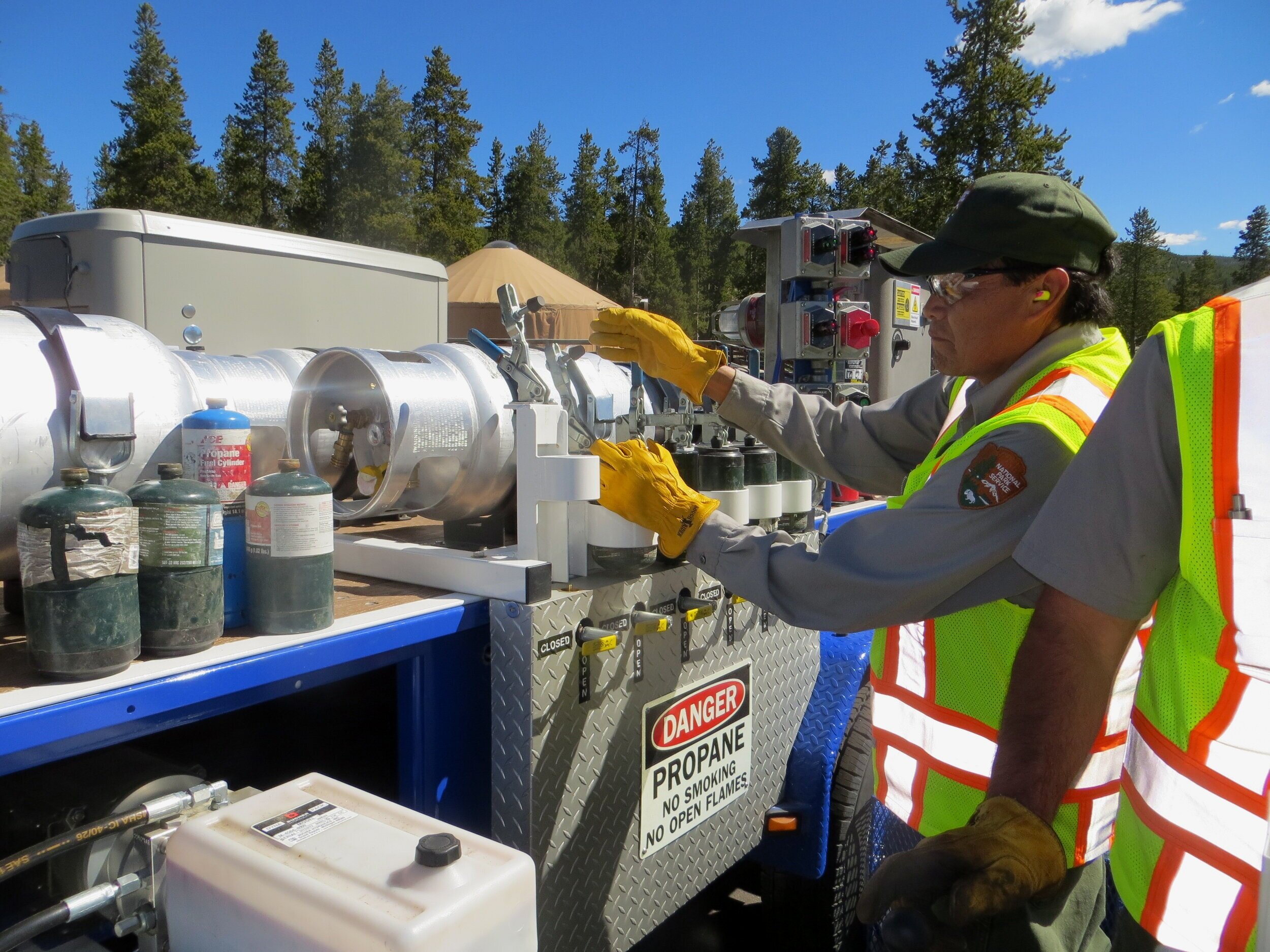
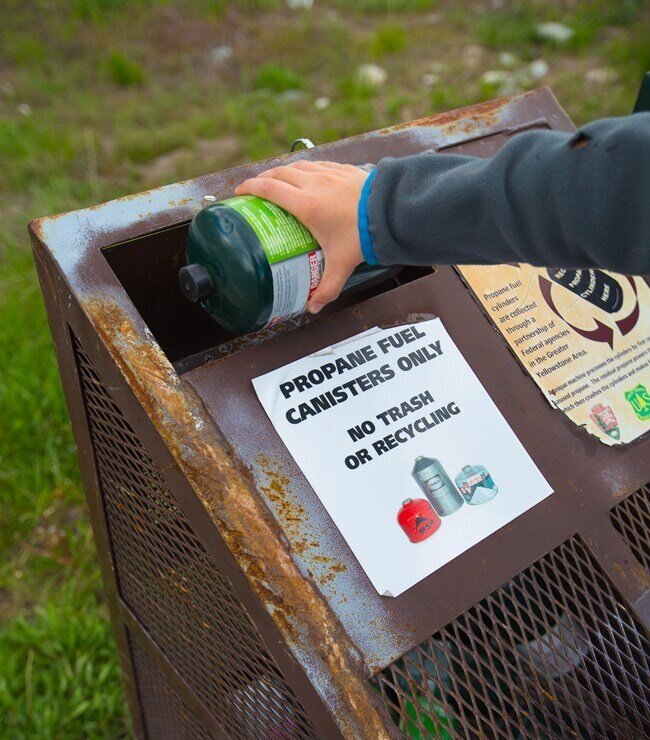
In our national parks single use 1lb propane canisters is a significant and challenging waste management issue. Since the early 2000’s Yellowstone and Grand Teton National Parks have collaborated to address this growing waste stream. Part of this effort was partnering with park concessionaires to commission the purchase of a mobile recycling unit Bernzomatic that captured remaining propane for reuse and to prepare the steel cans for recycling. In Grand Teton alone, between NPS, concessionaires, and County collection, approximately 8,000 units annually are collected and processed for recycling. Several challenges exist in managing this waste stream including the cost per unit to recycle is more than 2x as much as the purchase of the fuel container and this expense lands on the National Park Service and local waste processors. This cost doesn’t include employee and logistics. As part of ZLI’s greater impact efforts are underway to look at this issue on a national level.
The effort to more cost effectively and safely manage this waste is part of a national conversation that includes working with Worthington Industries (formerly Coleman) the largest manufacturer of these products, REI on point of purchase education, as well as exploring source reduction options.
VISITOR EDUCATION
Plan Ahead and Prepare…Ready, Set, Reduce and Recycle



As part of a dynamic education and engagement campaign, the park service communications team created several stop-action videos being shown in the park and nearby Jackson, Wyoming to educate visitors and community members on how to have a zero waste to landfill visit to the national park.
The videos are played at the Moose Park Visitor Center Auditorium before every park movie and reach an estimated 250,000 visitors each season. In 2019, the videos were also being played more than 2000 times per month at Jackson Hole’s cinemas and reached about 100,000 residents and visitors. The videos are being modified to be applicable for gateway businesses/organizations and for use by other national parks.
In addition to the videos, the park has updated the Plan Your Visit section of their website with a Green Travel Checklist that includes tips on a zero waste visit and what can be recycled in the area.
Jr. Ranger Day
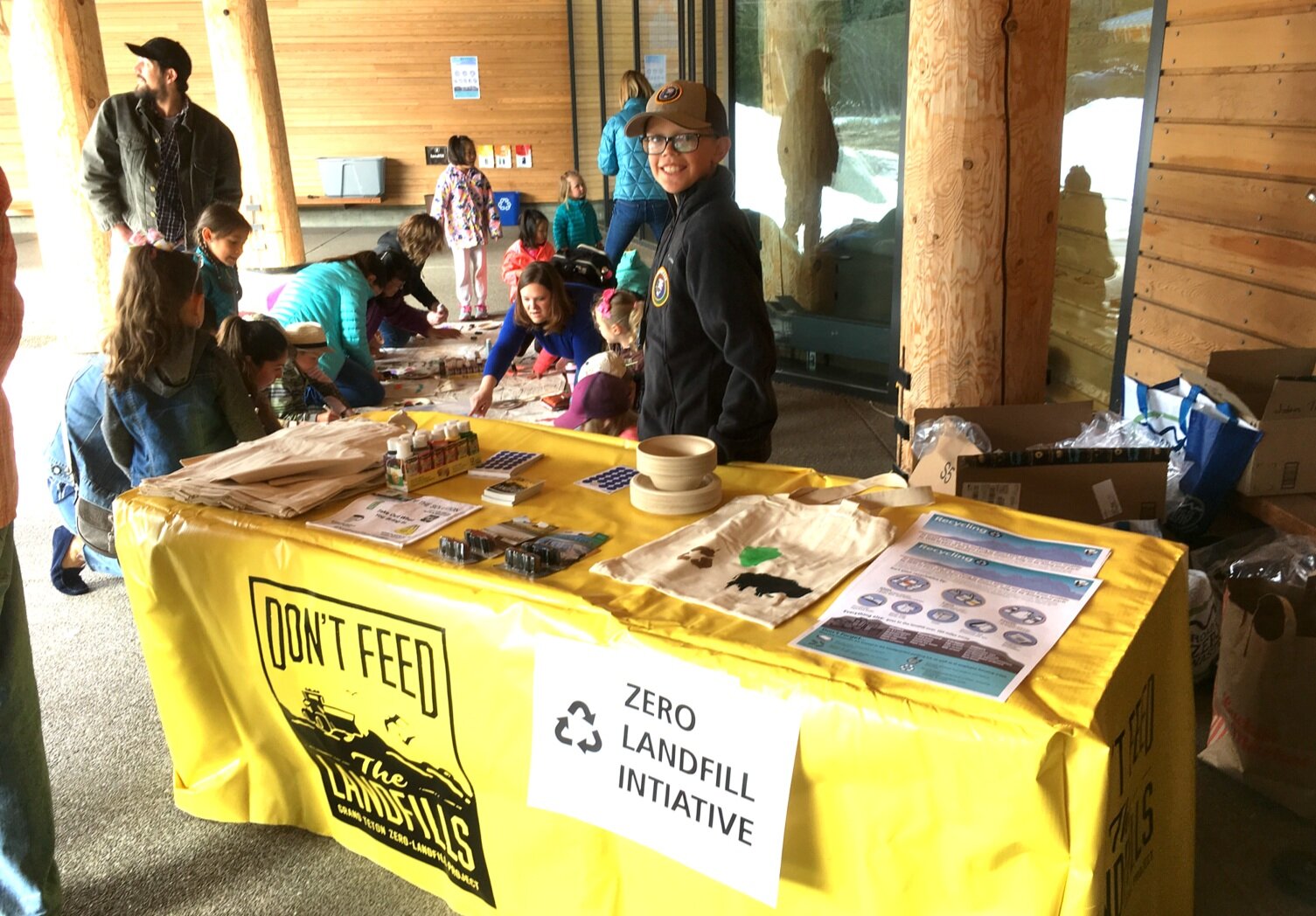
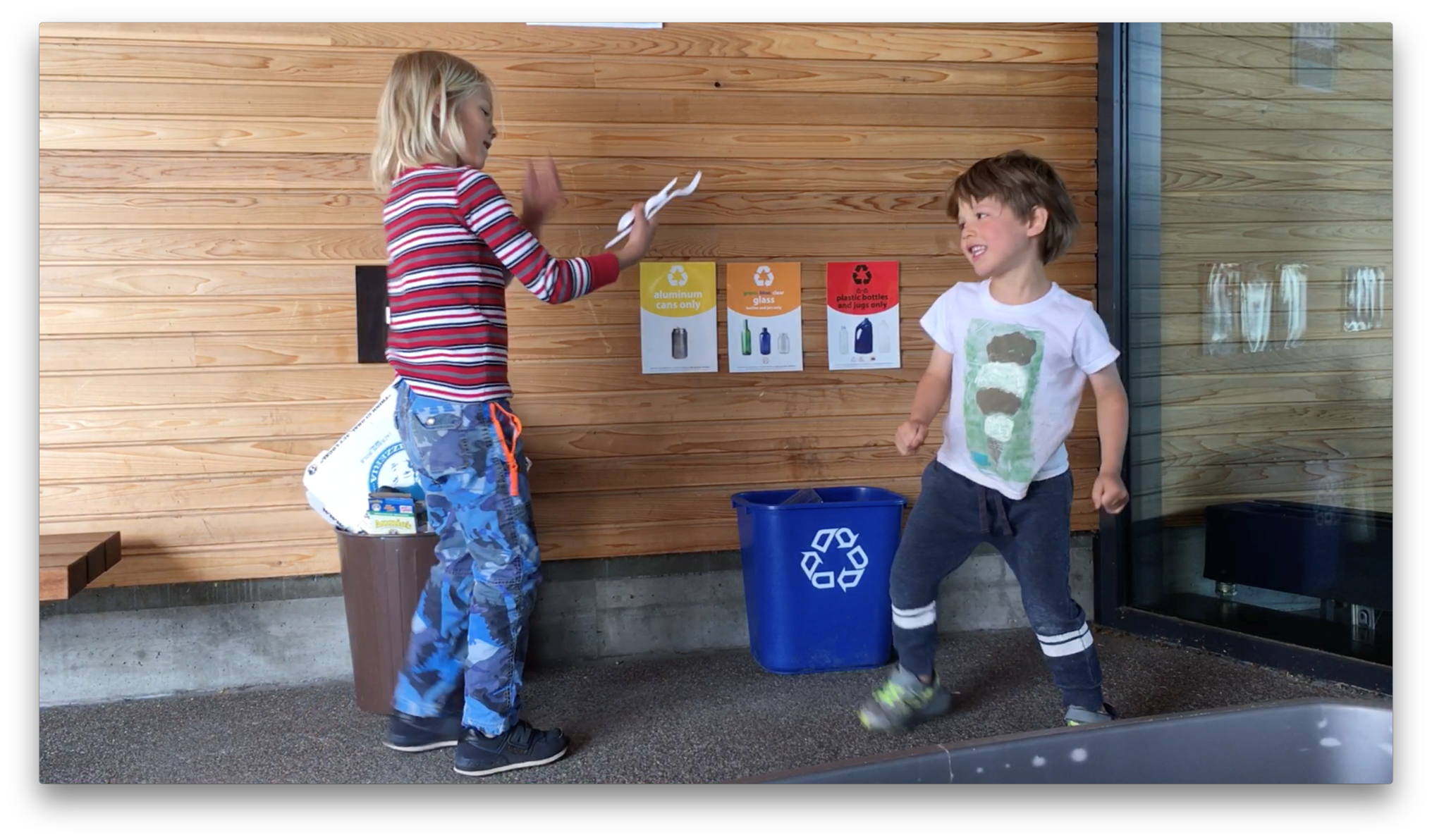
Youth engagement has been an impactful element of ZLI engagement especially at a local level in the park gateway communities. The Grand Teton NPS team utilized junior ranger day in 2019 to engage visiting youth to spread the ZLI message. Activities of the day included the custom crafting of 250 reusable cotton bags by kids as a fun zero landfill activity at the Visitor Center in Moose. Other activities included a “What to Recycle” sorting game that was then shared with park interpreters to use throughout the summer.
From Websites to Trail Heads and Visitor Centers – Spreading the Word
One of many benefits from the Zero Landfill Initiative has been a reduction in bear and wildlife encounters. This improvement can be attributed to significant expansion of animal-resistant waste and recycling infrastructure in all visitor locations with a focus on ease of use, standardized color and styles, and consistent labeling/signage.
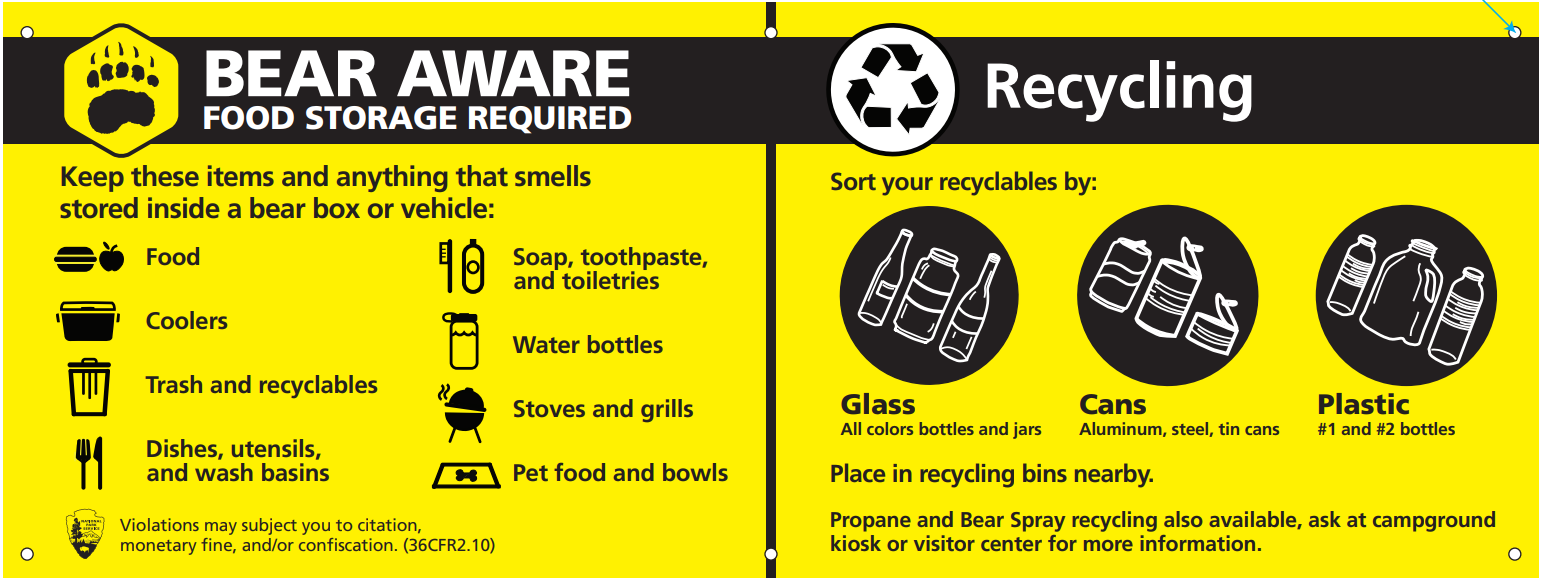
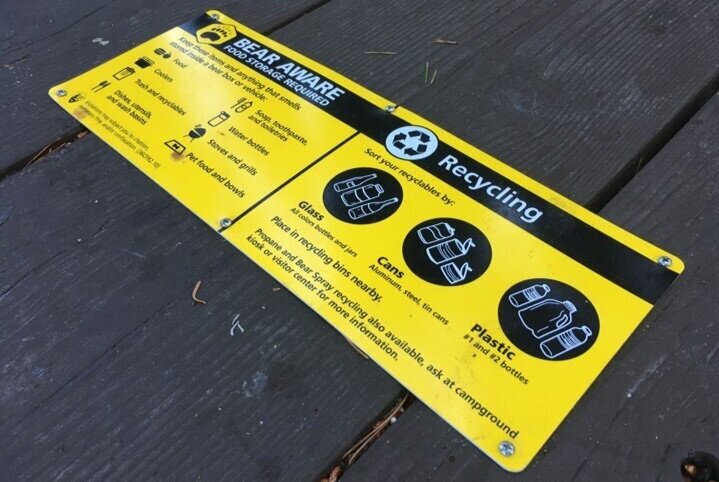
In addition to more collection containers in Grand Teton, the National Park Service designed and produced new picnic table toppers for day use and campground locations. The toppers made from durable materials designed to last for many years and combines bear safety messaging and information on what materials are recyclable in the park. An initial installation of 1,800 placards in 2019 covered NPS and concessioner operations. The placards are reinforced by campground maps that indicate the location of waste and recycling containers.
Local Students Take to Arts and Science to Divert Waste
In 2017, Grand Teton National Park with financial support from Subaru of America launched a partnership with Jackson Hole Public Art and the Teton County School District to challenge area high school students to increase recycling in the Park. The project engaged students in a variety of design and construction efforts running from innovative recycling containers to educational exhibits and messaging that were applicable to both indoor and outdoor settings. The process included research, community stakeholder meetings and tours of local recycling facilities to ensure the students were aware of the opportunities and challenges in the area.
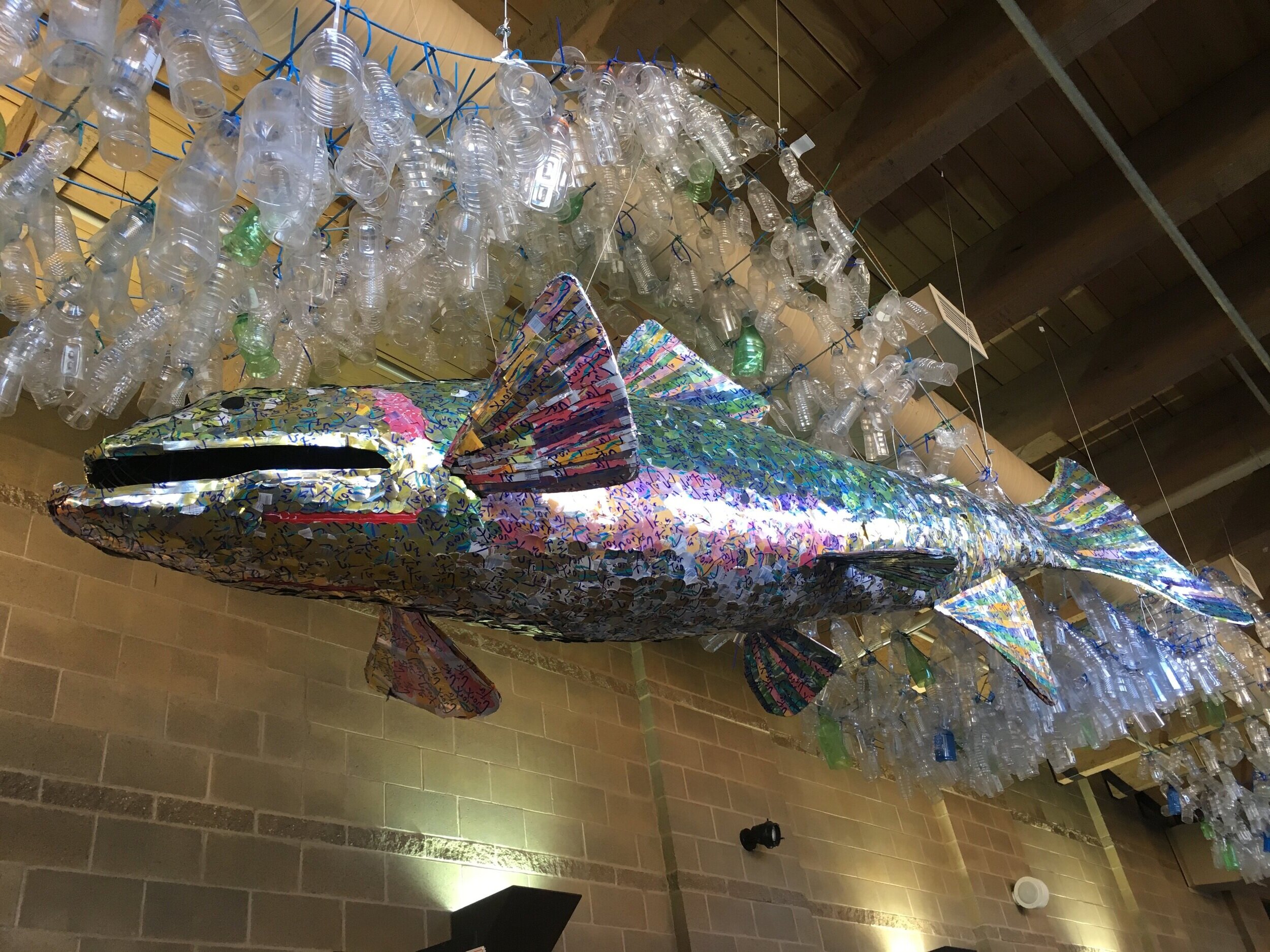

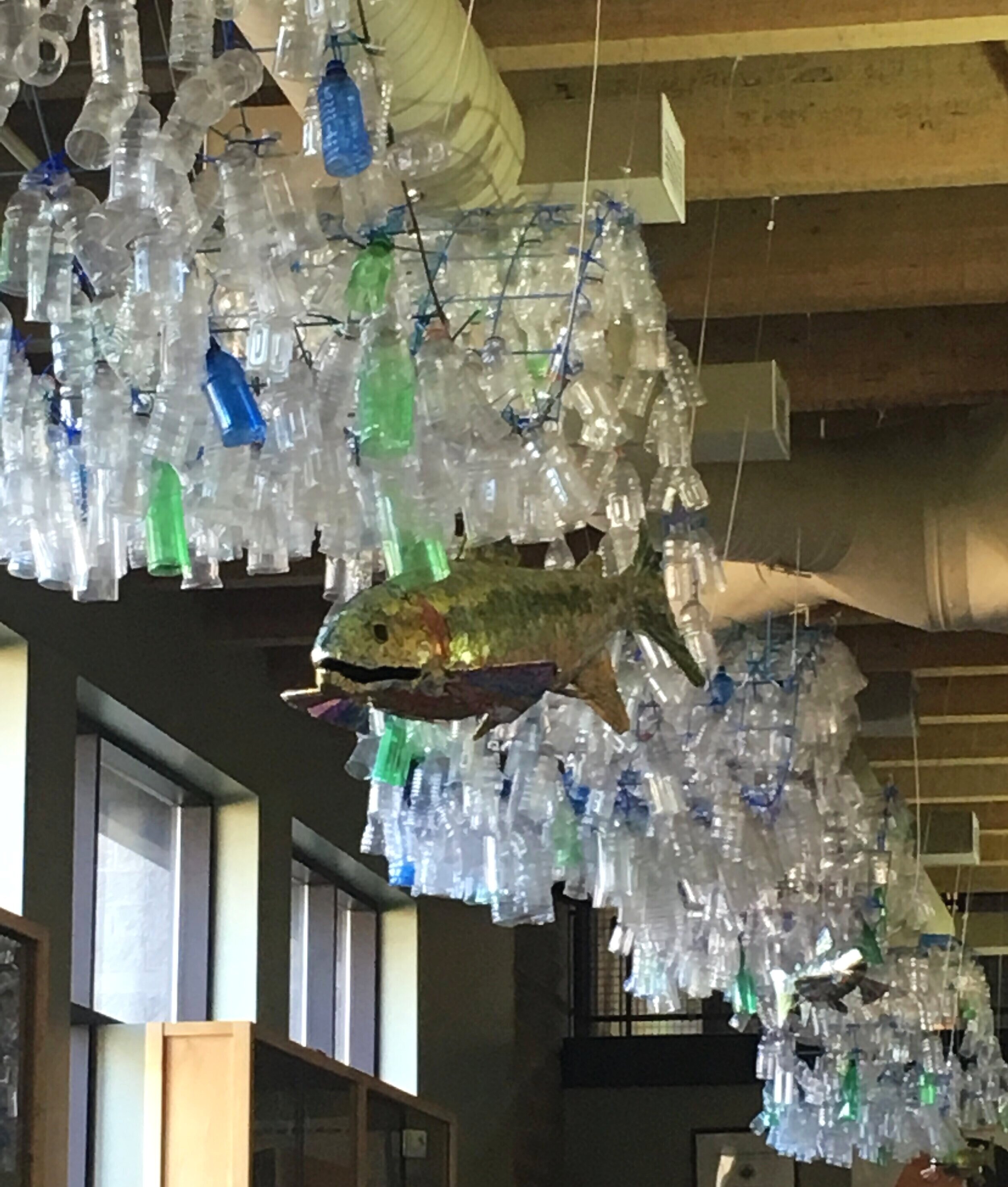
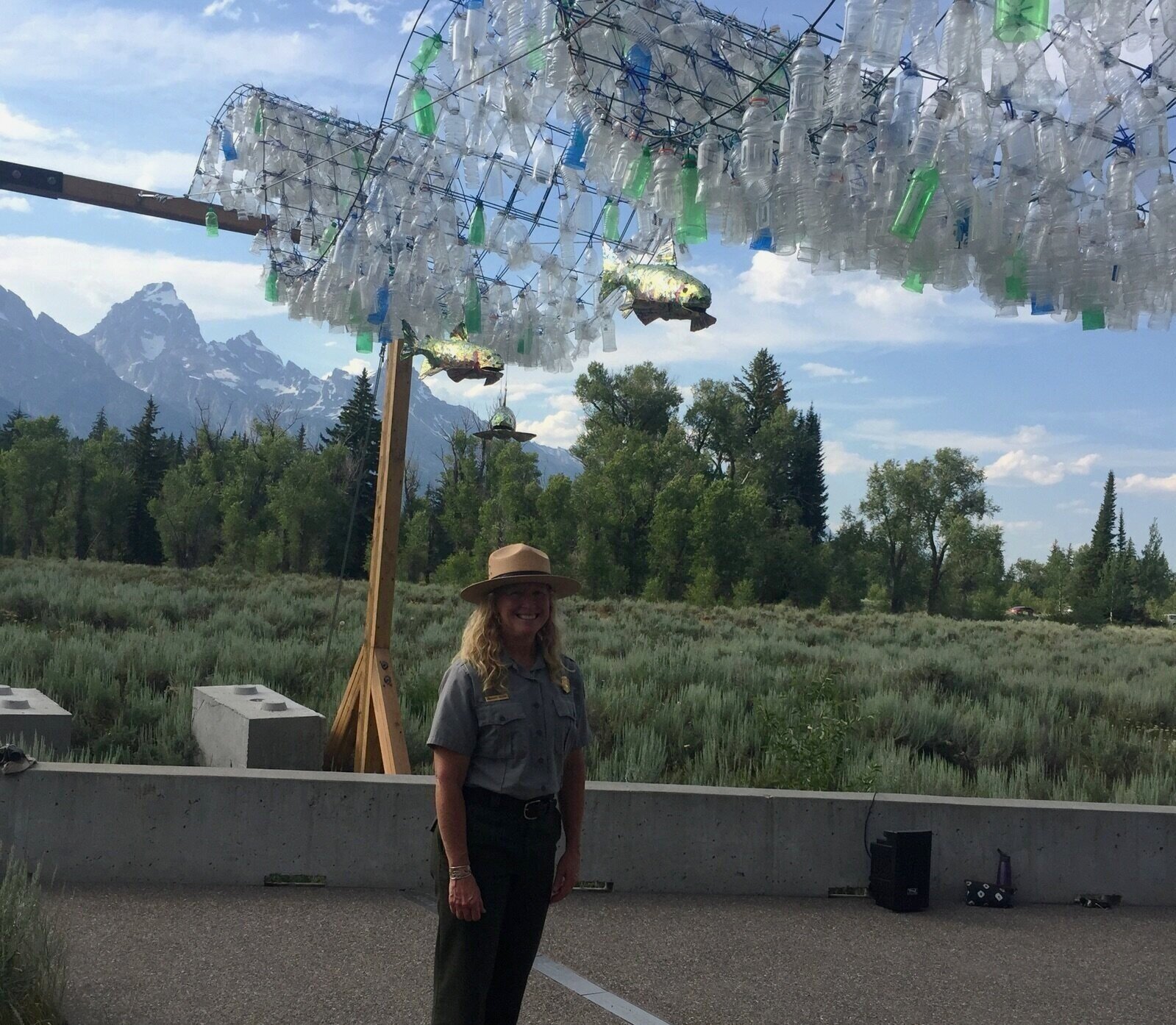
Much of the project was managed through the Jackson High School Fabrication Lab which integrates science and technology solutions into hands on learning. After numerous reviews, two separate projects were selected for fabrication and installation in the Craig Thomas Discovery and Visitor Center in Moose, WY.
EMPLOYEE EDUCATION
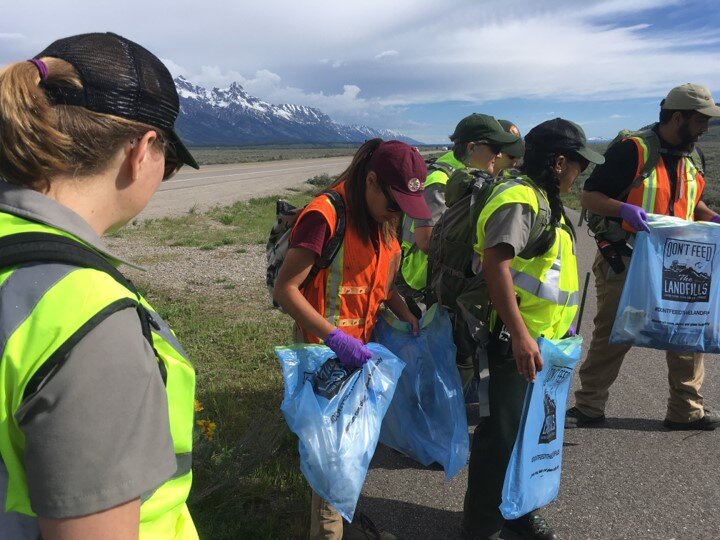
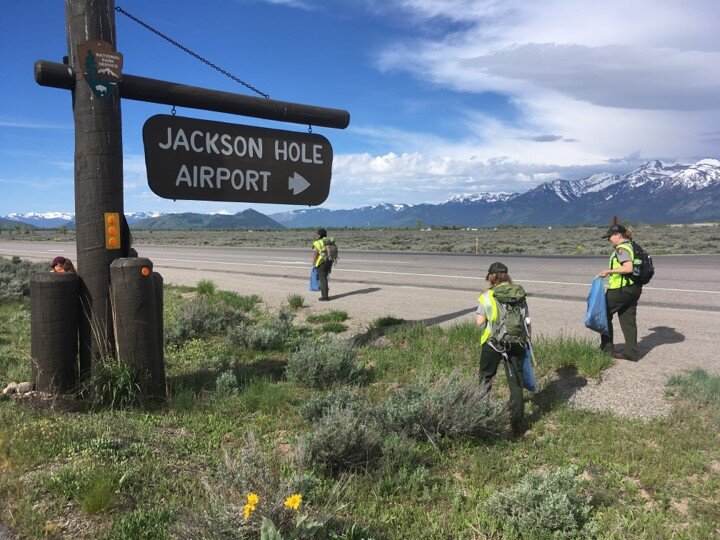
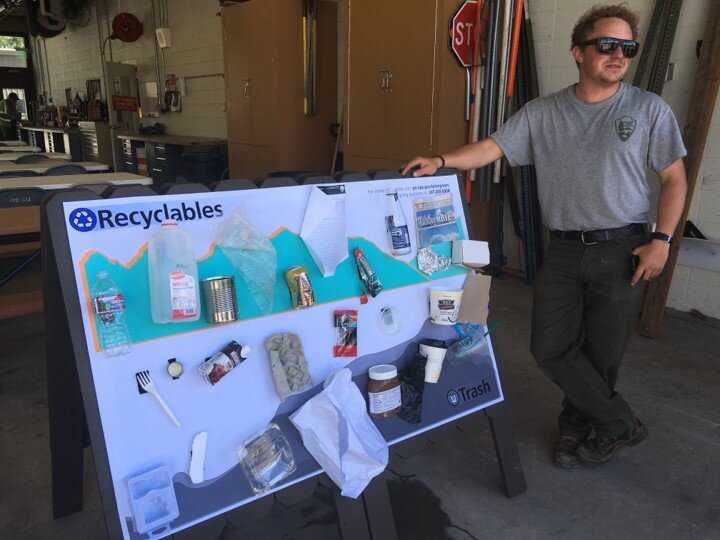
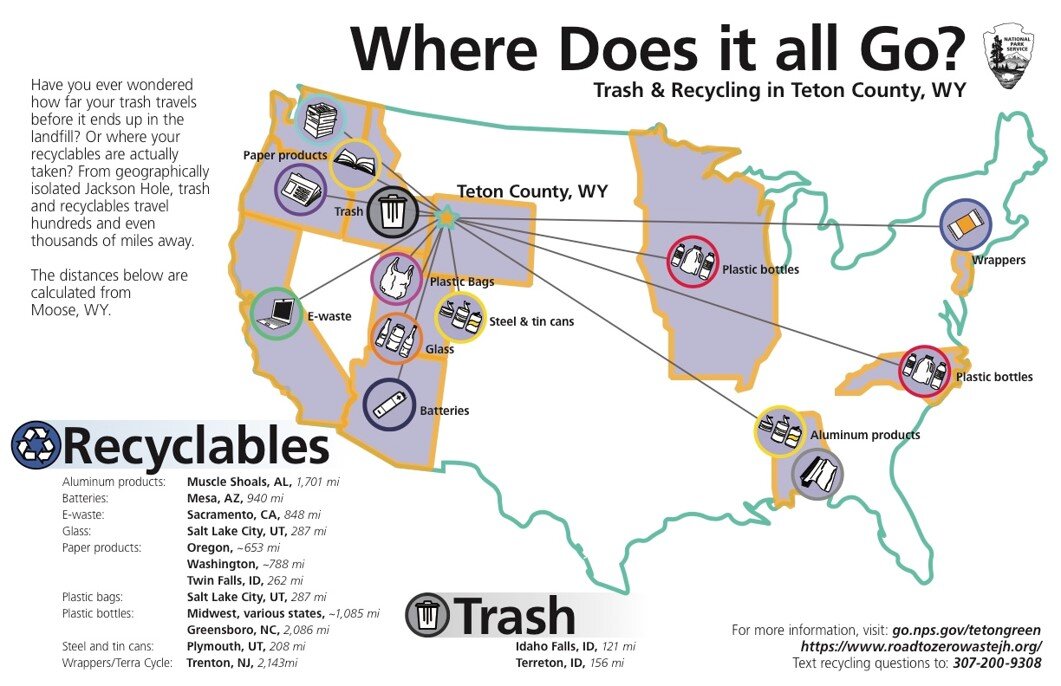
Realizing that employees are the first line for education and engagement, the NPS and its concessionaires ensure that year-round and seasonal employees receive a 101 on the importance of waste reduction and recycling and leading by example for visitors and area residents. Efforts include seasonal orientations, boot camps, special events (e.g., NPS Safety Day), waste sorts and educational displays and posters. In 2019, NPS placed detailed posters directly in 200+ seasonal housing units as well as distributing them to permanent (year-round) residents. To further reinforce this messaging, many employees received reusable totes and other durable items to discourage utilization of single use items.
Zero Waste Challenge
The Zero Waste Challenge took place at Grand Teton National Park in August 2019. The challenge was conceptualized by the park’s green team as a way to engage park staff in sustainability efforts and encourage individuals to think critically about the daily impact they have on the environment.
The park put out a call for volunteer participants who were asked to collect all the waste they produced in a two-week period. The challenge engaged 75 participants, representing 48 households within the park.
A zero-waste resource guide and a visual composting guide were created and made available online, and posted in work areas and break rooms. Eco-Ambassadors were selected for each division to help disseminate information and build excitement and camaraderie before and during the challenge. Information was communicated through various channels, including park-wide emails, individual emails, the employee newsletter, individual texts and emails and by word of mouth.
During the two-week challenge, participants produced 424 pounds of compostable material and only 117 pounds of trash (averaging 1.6 pounds per person), diverting 78% from the landfill. Numbers like that bolstered employees’ morale about their capacity to have a positive effect on the environment.
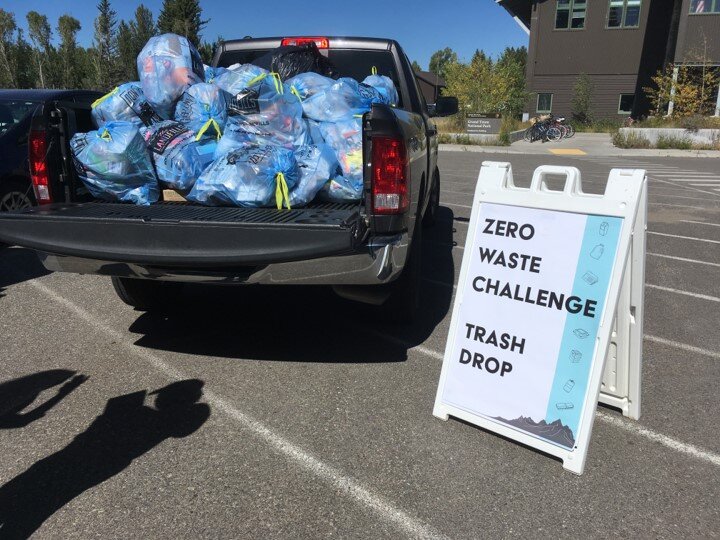
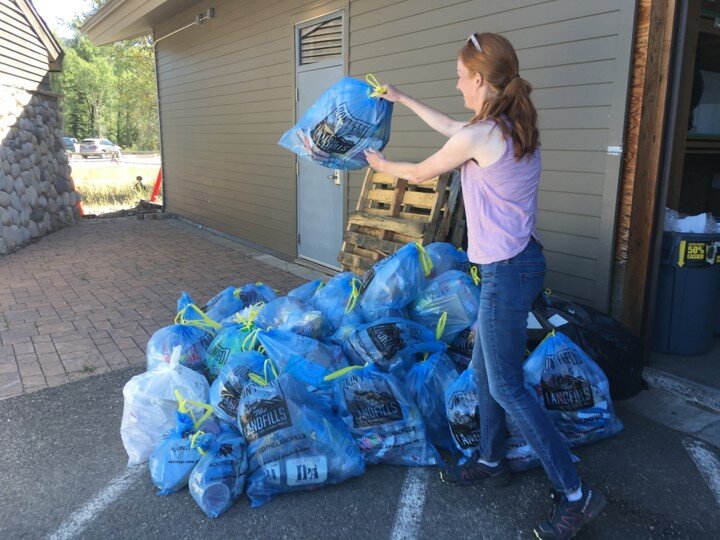
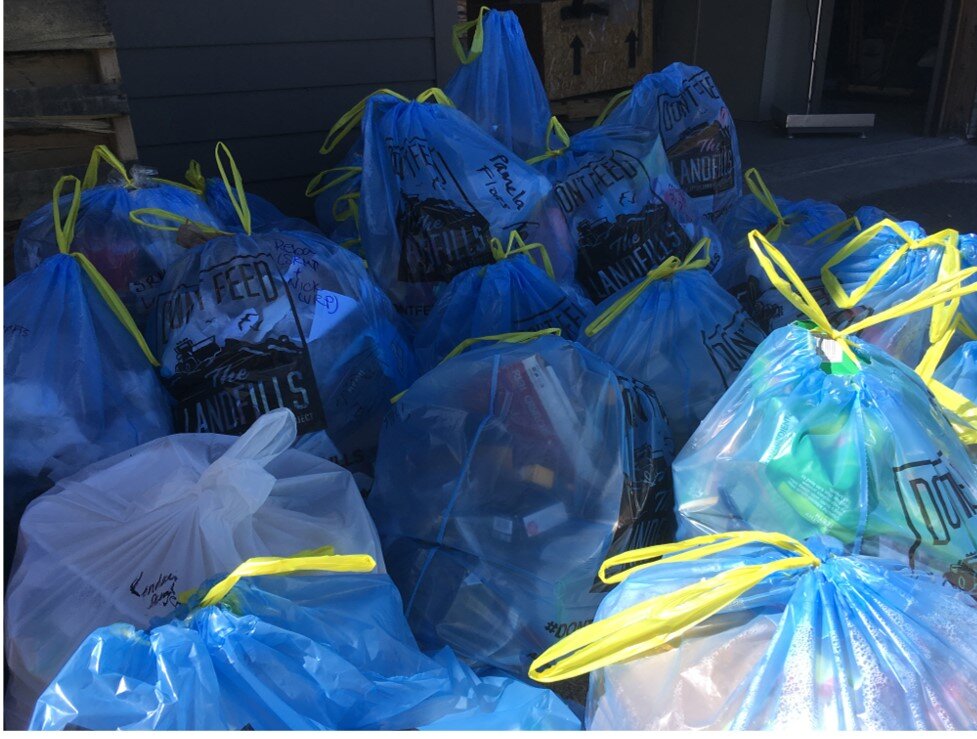
A park social science intern surveyed participants as they dropped off their trash and compost. The survey results provided insightful social science data, including best practices, overall response to the challenge and general enthusiastic support of the composting program. Additional social science data was collected in a post-challenge survey with a response rate of more than 50 percent.
From initial analysis, it’s clear that this data will provide critical insight into how best to approach future composting and sustainability programming. In the post-challenge survey, 60 percent of participants identified composting as the easiest and most exciting solution to waste reduction. Overall, responses to the challenge and composting program were positive, with numerous requests to continue the program into the future.
The momentum and excitement surrounding composting spurred the Subaru ZLI team to pursue a composting pilot for Grand Teton Employees in 2020. After identifying necessary infrastructure and partnerships to make composting at Grand Teton a reality, the NPS Employee Composting Pilot collected 2,800 pounds of food waste!
“This challenge changed my shopping habits. It forced me to think about packaging before I bought anything. I started choosing things like apples over berries because apples have no packaging and berries come with lots of plastic. It was eye opening how much trash came along with one frozen meal.”
Grand Teton Partners
Grand Teton National Park Foundation / Grand Teton Association / Haderlie Farms / Jackson Hole High School / Jackson Hole Public Art / Riverwind Foundation / Teton County Integrated Solid Waste and Recycling / Teton Science Schools / West Yellowstone Composting Facility / Westbank Sanitation

